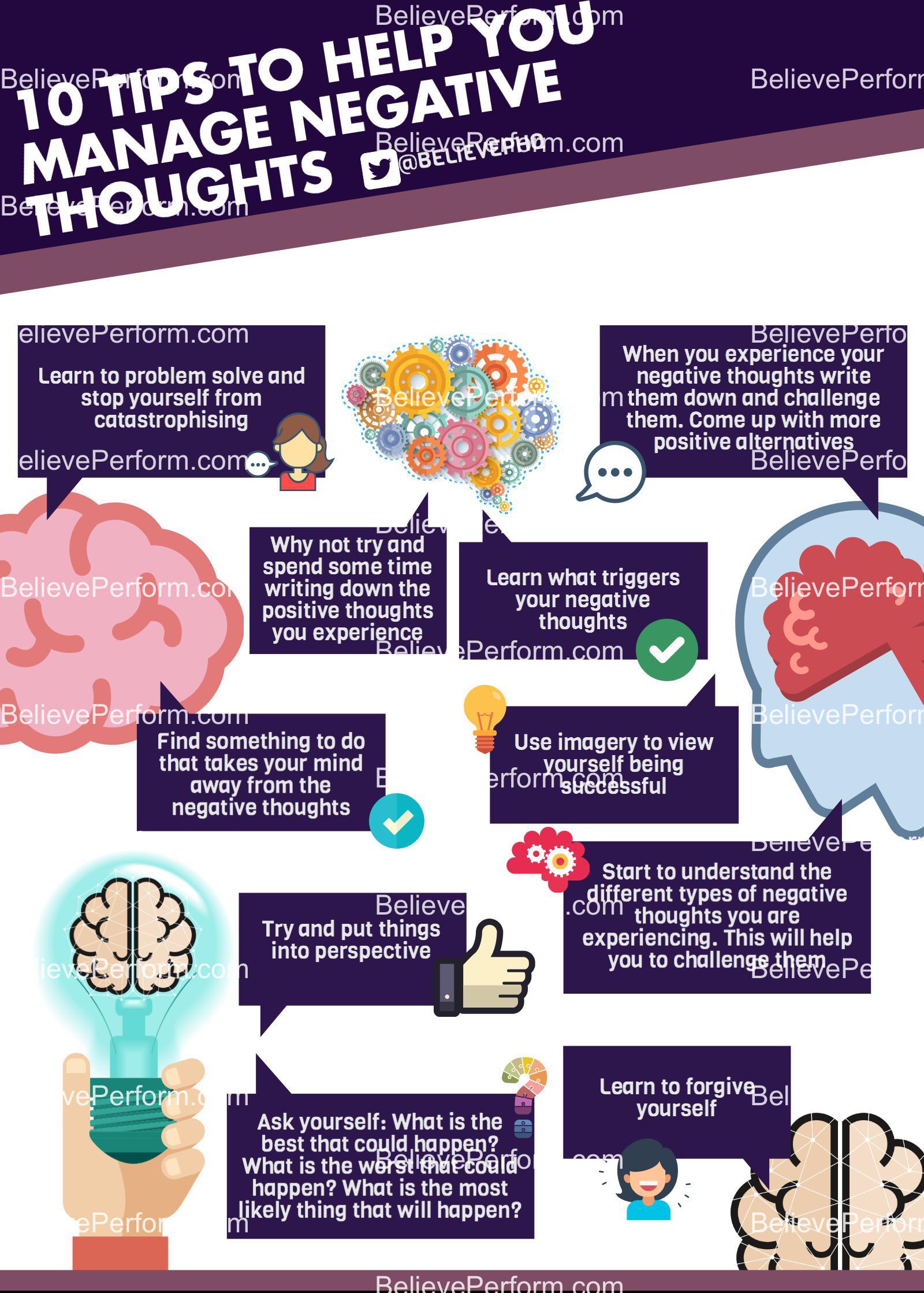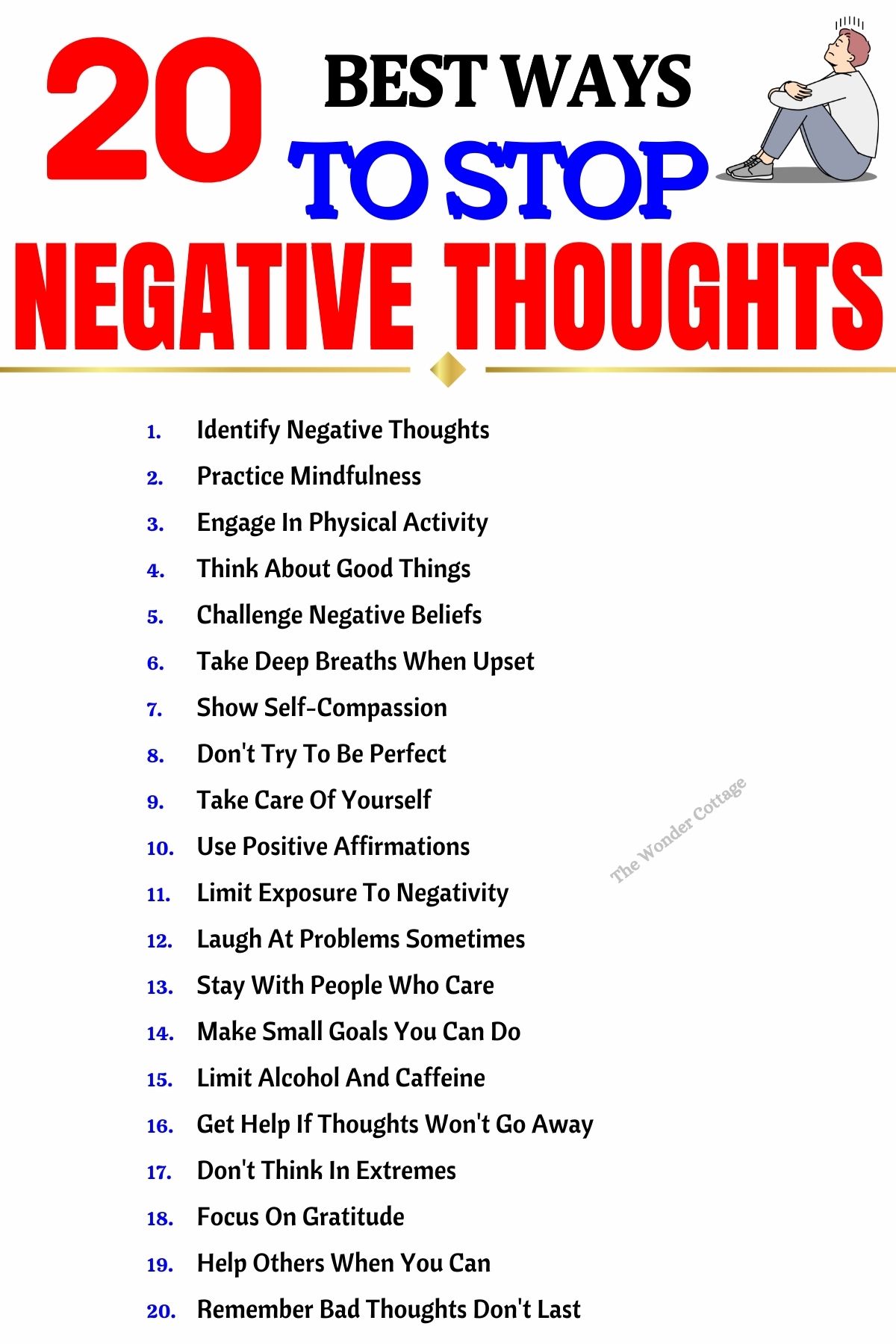Ways To Overcome Negative Thoughts

In the relentless churn of modern life, negative thoughts can feel like an unwelcome, yet persistent, shadow. They cloud judgment, erode self-esteem, and ultimately, hinder our ability to thrive. The good news is, these mental patterns, while powerful, are not insurmountable.
While occasional negative thoughts are normal, a constant barrage can signal underlying issues like anxiety or depression. Learning effective coping mechanisms is crucial for maintaining mental well-being and preventing these thoughts from spiraling out of control. This article will explore evidence-based strategies for managing and overcoming negative thought patterns, drawing on expert advice and scientific research.
Understanding the Roots of Negativity
Negative thinking often stems from cognitive distortions, which are irrational thought patterns that skew our perception of reality. Identifying these distortions is the first step toward challenging them. According to the American Psychological Association, common distortions include catastrophizing, overgeneralization, and personalization.
For example, catastrophizing involves exaggerating the negative consequences of an event, while overgeneralization involves drawing broad conclusions from a single incident. Personalization leads individuals to believe they are responsible for events that are beyond their control. Recognizing these patterns allows for targeted intervention.
Practical Strategies for Thought Management
Cognitive Behavioral Therapy (CBT) is a widely recognized and effective treatment for negative thinking. It focuses on identifying and changing negative thought patterns and behaviors.
CBT techniques often involve keeping a thought diary to track negative thoughts, the situations that trigger them, and the emotions they evoke. Once identified, these thoughts can be challenged by asking questions like, "What is the evidence for this thought?" or "Is there another way to look at this situation?". Reframing negative thoughts into more balanced and realistic ones is a key component.
Another useful technique is mindfulness meditation. This practice involves focusing on the present moment without judgment, allowing individuals to observe their thoughts without getting carried away by them. Studies have shown that regular mindfulness meditation can reduce activity in the amygdala, the brain region associated with fear and anxiety, potentially lessening the intensity of negative emotions.
The Role of Lifestyle and Environment
Our physical health and environment significantly influence our mental state. Maintaining a healthy lifestyle is crucial for managing negative thoughts.
Regular exercise, a balanced diet, and sufficient sleep have been proven to reduce stress and improve mood. Exercise releases endorphins, which have mood-boosting effects, while a nutrient-rich diet provides the necessary building blocks for brain health. Sleep deprivation, on the other hand, can exacerbate negative thinking and impair cognitive function.
Furthermore, the environment we surround ourselves with can either fuel or mitigate negative thoughts. Surrounding oneself with positive and supportive people can provide a buffer against negativity. Limiting exposure to negative news and social media content can also protect mental well-being.
Seeking Professional Help
While self-help strategies can be effective for many, some individuals may benefit from professional support. If negative thoughts are persistent, debilitating, or accompanied by symptoms of depression or anxiety, seeking help from a therapist or counselor is recommended.
A therapist can provide personalized guidance and support in developing coping mechanisms and addressing underlying issues. Medication may also be considered in some cases, but should always be used in conjunction with therapy.
"It's important to remember that seeking help is a sign of strength, not weakness," says Dr. Emily Carter, a clinical psychologist specializing in cognitive behavioral therapy. "Therapy provides a safe space to explore negative thoughts and develop strategies for managing them."
Looking Ahead: Building Resilience
Overcoming negative thoughts is an ongoing process, not a one-time fix. Building resilience – the ability to bounce back from adversity – is key to long-term mental well-being.
This involves developing a positive self-image, practicing self-compassion, and cultivating a strong social support network. Regularly engaging in activities that bring joy and meaning to life can also buffer against negativity.
By understanding the roots of negative thinking, implementing practical strategies, and prioritizing mental well-being, individuals can break free from the cycle of negativity and cultivate a more positive and fulfilling life. Remember, mental health is just as important as physical health, and taking proactive steps to manage negative thoughts is an investment in a brighter future.


















